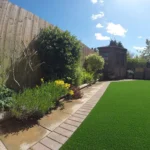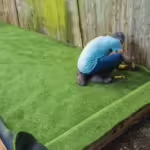Pest control is a crucial aspect of maintaining a healthy and comfortable home environment. From ants and cockroaches to rodents and termites, pests can cause significant damage to property and pose health risks to residents. Proper pest control measures help in preventing infestations, reducing health hazards, and preserving the structural integrity of homes.
Common Household Pests
Some of the most common shashel.eu found in residential properties include ants, spiders, cockroaches, rodents, termites, and bed bugs. Each of these pests brings its own set of challenges:
- Ants: They are often found near food sources and can contaminate food supplies.
- Cockroaches: Known for spreading diseases, cockroaches thrive in warm, damp environments.
- Rodents: Mice and rats can chew through wiring, insulation, and even drywall, in addition to spreading diseases.
- Termites: These insects cause significant structural damage as they feed on wood, potentially compromising the stability of homes.
- Bed Bugs: Bed bugs feed on blood, causing itchy bites and discomfort for homeowners.
Preventive Measures
The best way to handle pest problems is through prevention. Here are some steps homeowners can take to minimize the risk of infestation:
- Seal entry points: Check for cracks and gaps in windows, doors, and foundations. Sealing these openings can prevent pests from entering.
- Proper food storage: Ensure that all food is stored in airtight containers, especially in kitchens and pantries, to deter pests like ants and rodents.
- Regular cleaning: Pests are attracted to dirt and leftover food. Regularly clean countertops, floors, and other areas where crumbs and spills occur.
- Waste management: Dispose of garbage regularly and use tightly sealed bins to avoid attracting pests.
- Moisture control: Many pests thrive in damp conditions, so fix leaky pipes and ensure proper ventilation in basements and attics.
Professional Pest Control Services
While preventive measures can help reduce the risk of pest infestation, professional pest control services are often necessary for long-term solutions, especially in cases of severe infestation. Pest control professionals have the expertise and tools to identify the root of the problem and eliminate pests effectively. Common treatments include chemical sprays, baits, traps, and, in some cases, fumigation for more severe infestations.
Health and Safety Considerations
Pest control treatments, especially those involving chemicals, should be handled with care. Many pest control companies offer environmentally friendly or low-toxicity options to minimize the risk to humans, pets, and the environment. Always discuss the safety of treatments with a professional and follow any guidelines provided during the treatment process.
In conclusion, maintaining a pest-free home requires a combination of preventive measures and, when necessary, professional intervention. Regular inspections and proactive actions can save homeowners from the cost and stress of dealing with infestations.


